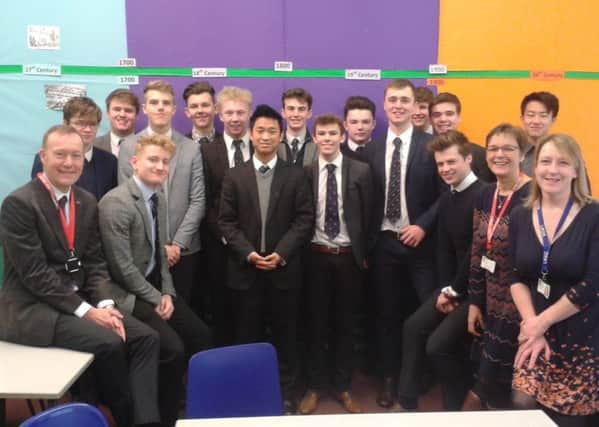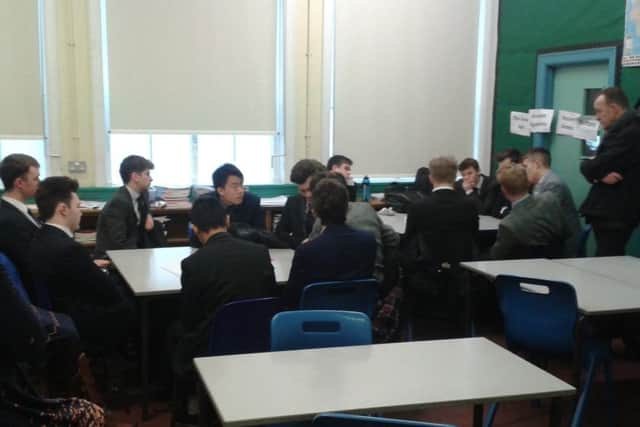Grammar school students give Lancaster cancer charity food for thought


CancerCare chief executive Neil Townsend and Alison Dixey, head of client services and development, visited LRGS as part of their research into improving their provision specifically for children and young people.
Although CancerCare offers support to anyone from the age of three, two thirds of those they see within the three to 18 age range are 12 or under.
Advertisement
Hide AdAdvertisement
Hide AdThey are hoping to expand their work to help teenagers feel more comfortable with visiting


Speaking at the Sixth Form students’ morning assembly, Alison said: “We want to work out how we as an organisation can be more approachable to young people and how we can improve the service for them.”
After speaking about the importance of CancerCare in the community and how it can help young people, the pair joined a group of students as they discussed how the service currently offered could be improved.
On the agenda was the idea of having a bigger presence on social media, as well as the possibility of expanding their provision within their Slyne Road facility.
Advertisement
Hide AdAdvertisement
Hide AdThe boys were asked what facilities they would like to see if they were affected by cancer themselves.


Ideas included using social media platforms such as Facebook and Snapchat to bring young people together online, holding special events and activities so that teenagers can meet in person and gain information at the same time, and also speaking to other people who are going through or have gone through a similar situation.
The students agreed that it would be advantageous to have the opportunity to meet with other young people affected by cancer, rather than their immediate friends and family.
After the event, Neil said: “It was a great opportunity to speak to 270 sixth formers and tell them more about the work we do at CancerCare.
Advertisement
Hide AdAdvertisement
Hide Ad“Throughout the past few months, we’ve been busy gathering lots of views and ideas from young people around the local area to help us set up our new cancer support service.
“But getting young people to engage in a conversation about a still fairly taboo topic, ‘Cancer’, is not easy.
“However, in the tutorials that followed the assembly, I was struck by the openness and willingness of the class to open up and talk about the kind of support they would want to see us develop, in addition to the services we currently deliver.
“So far, we have spoken or engaged with more than 400 teenagers across north Lancashire and south Cumbria, so pretty impressive and for us, hugely valuable.”